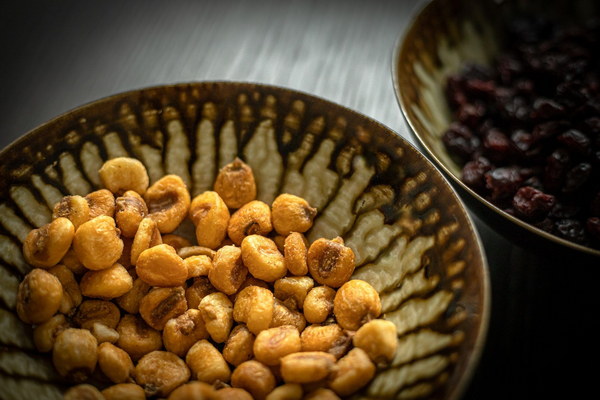Nourishing Your Stomach Top Herbal Remedies and Supplements for Gastrointestinal Health
Introduction:
The gastrointestinal (GI) tract is a complex and vital system that plays a crucial role in our overall health and well-being. Maintaining a healthy stomach is essential for digestion, nutrient absorption, and immune function. While a balanced diet and regular exercise are key to a healthy gut, sometimes we need a little extra support. This article explores the top herbal remedies and supplements that can help nourish and strengthen your stomach, promoting overall gastrointestinal health.
1. Ginger:
Ginger has long been used in traditional medicine for its anti-inflammatory and digestive properties. It can help alleviate nausea, bloating, and indigestion, making it an excellent choice for those with sensitive stomachs. Consuming ginger tea or adding fresh ginger to your meals can provide these benefits.
2. Peppermint:
Peppermint is another popular herb known for its digestive benefits. It can help relax the muscles of the digestive tract, reducing symptoms of irritable bowel syndrome (IBS) and other gastrointestinal disorders. Peppermint tea or essential oil can be used to alleviate bloating, gas, and abdominal pain.
3. Turmeric:
Turmeric, a spice commonly used in Indian and Middle Eastern cuisine, contains the active compound curcumin, which has potent anti-inflammatory properties. Curcumin can help reduce inflammation in the stomach and improve digestion. Adding turmeric to your meals or taking it as a supplement can provide these benefits.
4. Probiotics:
Probiotics are live bacteria that can help maintain a healthy balance of gut flora. They can be found in various foods, such as yogurt, kefir, and fermented vegetables, or taken as a supplement. Probiotics can help improve digestion, reduce symptoms of IBS, and boost immune function.
5. Digestive Enzymes:
Digestive enzymes are substances that break down food into nutrients that can be absorbed by the body. Taking digestive enzyme supplements can help improve digestion, especially for those with conditions such as lactose intolerance or malabsorption. Common digestive enzymes include lactase, amylase, and protease.
6. Choline:
Choline is an essential nutrient that plays a crucial role in fat metabolism and cell membrane function. It can also help support the liver and gallbladder, which are essential for proper digestion. Choline-rich foods include eggs, liver, and peanuts. Taking choline supplements may be beneficial for those with digestive issues.
7. Fennel:
Fennel is an aromatic herb known for its digestive properties. It can help reduce bloating, gas, and indigestion. Fennel seeds can be chewed after meals or added to teas and soups for their therapeutic benefits.

8. Licorice Root:
Licorice root has been used for centuries in traditional Chinese medicine to support the digestive system. It can help reduce stomach acidity and inflammation, making it beneficial for those with conditions such as acid reflux and gastritis. However, licorice root supplements should be used with caution, as they may cause high blood pressure in some individuals.
Conclusion:
Nourishing your stomach is essential for overall gastrointestinal health. Incorporating these herbal remedies and supplements into your diet can help alleviate symptoms, improve digestion, and support a healthy gut. Always consult with a healthcare professional before starting any new supplement regimen, as individual needs may vary. By taking care of your stomach, you can enjoy better health and well-being.









